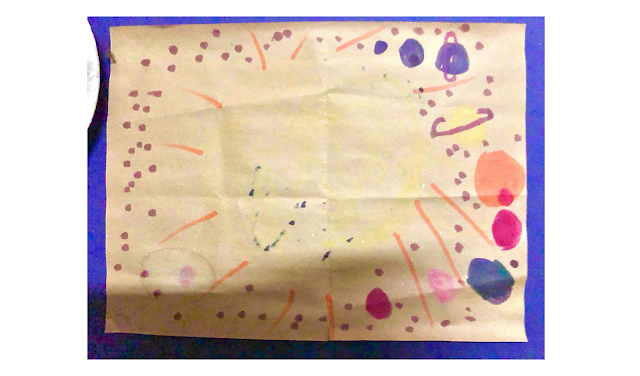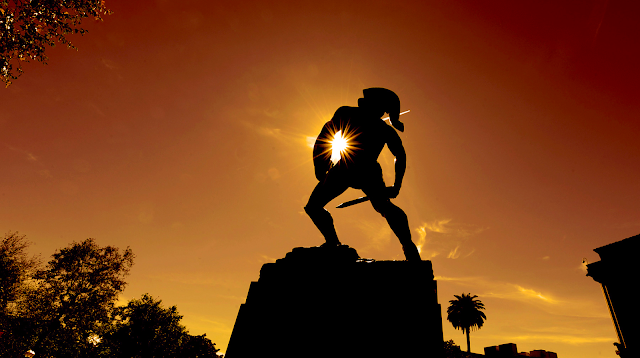 | |
|
 |
| Me in 5th grade with my family at Johnson Space Center | My 2nd grade Space Book art project |
It may seem curious then, why I pursued a career in finance. At graduation when I told my high school physics teacher I was going to UT Austin's business school, she pulled her glasses down and gave me that look of disappointment only a teacher can give. "Are you telling me you're not going to become a scientist? That is quite a shame, you would've made an excellent scientist." Perhaps she was right; I'll admit when I'm plugging along in Excel or reading some dry financial report, and I pause to watch heart-pounding, ground-shaking, fire-breathing rocket launches on YouTube, I look back wistfully and wonder what could have been. But I picked finance for a reason - I prefer the human aspect of business, the interpersonal interactions that underpin economic growth. And maybe the grass is just greener on the other side; in some alternate Universe, I bet Astronomical Returns is written by Hans the aerospace engineer, who in his spare time when he's sick of soul-crushing calculations of structural loads and astrodynamics, writes about financial modeling, economic theory, and the latest mega-deal plastered across the Wall Street Journal. So hopefully colonizing the stars will take more than just engineers; I believe it will be a collective effort of all humanity, investment bankers included. For now I'm content to play my sidekick role, and I'll defer to the engineers to determine the optimal rocket fuel - kerosene, hydrogen, methane, you name it. Because secretly, we finance people already know the answer: the best rocket fuel is cash.
 |
| My personal astrophotography compilation - a magnified full moon is very bright, but I'm too cheap to buy a moon filter, hence the midnight sunglasses |
My SpaceX interviewers must've wondered the same question, because many of them asked, "if you love space so much, why become an investment banker?" But as excited as I am to join SpaceX, I wouldn't have traded my time at Evercore for anything. Now, I'm far from the best analyst Wall Street has ever seen, I'm not even close to being the best analyst the Evercore healthcare group has ever seen. That distinction should go to the second-year analyst I worked under for the Bristol / Celgene deal, who I'm convinced is actually a walking supercomputer (and who unsurprisingly studied engineering, not finance). But starting my career at Evercore taught me the importance of 1) believing in a collective goal and 2) the value of an all-star team, two things I'm sure I'll find at SpaceX. Like most banking analysts, I did my fair share of grinding through the late nights and blown weekends, and at times I got so overlevered on sleep debt I should've been shipped off to circadian rhythm restructuring (sorry, nerdy finance joke!). But in 18 months, I almost never had anything negative to say about the people I worked with. They were truly the best of the best, and if my team at SpaceX is even half as good, then I will be in good hands.
 |
| "Hans your desk isn't a desk, it's a space station" - my customized NASA mug, and my Apollo 11 paperweight |
Moving to SpaceX might seem like a no-brainer, but that doesn't make me any less anxious to suddenly uproot my life, nor does it make my hasty goodbyes to my friends in New York any easier. With change comes risk, and I'm no risk-seeker. But my heroes are fearless astronauts who ride columns of fire to brave the dark abyss of space - not for money, not for fame, but for adventure, and for the betterment of all mankind. If we can put man on the moon, then I can find the guts to move across the country.
 |
| Me with my LEGO Saturn V in front of my room in San Antonio | A selfie with a Eugene Cernan replica spacesuit, the last man on the moon |
Whenever I talk about space, the response I often get is, "why should we invest money into space exploration, when we have so many problems here on Earth?" And it's a valid question - sending a spacecraft worth hundreds of millions of taxpayer dollars billions of miles away doesn't seem to serve any direct purpose. Why bother?
Perhaps. But as a society, we collectively spend absurd amounts of money on things that "don't serve practical purpose." Piano lessons. Rock concerts. Football games. By that logic, the whole sphere of athletics, fine arts, and humanities serves no practical purpose, yet people dedicate their whole lives to these pursuits, and governments give grants supporting them. The desire to create is what makes us human, as is the desire to understand our place in the Universe. We're a species of explorers, of adventurers, of dreamers, and a society that doesn't foster these endeavors will eventually stagnate.
 |
| With a replica Gemini capsule at the Intrepid Sea, Air & Space Museum |
One of these days, in the not too distant future, a human being is going to take the first step on Mars. When that day comes, there will be only one of two possibilities: either I helped put that flag and that footprint in the alien red soil, or I did not. I choose the former, because the latter is unacceptable; 5-year-old Hans would never forgive 50-year-old Hans for letting his space dream die. I'm nearly 24 now, so call it a guy chasing his passion or a full-blown, unmitigated quarter life crisis, but more and more I realize that my mid-20s might be my last good chance to set myself on the path I want to live. So I must go, there's no turning back. My hand is completely off the abort handle.
 |
| "To be opened upon SpaceX or Blue Origin offer" - this wine bottle patiently waited a long time to be enjoyed |
Space has always been a fool's errand, and it may forever be an uphill battle convincing people the journey is worth the cost, in money and in lives. My contribution to space exploration will be minuscule at best, and I will die long before we build a self-sustaining city on Mars. But that's alright by me, that was never the point of any of this, just as the point of Astronomical Returns was never to force people to learn advanced aeronautical engineering or quantum physics. As long as I have left you with a little more inspiration and a little more hope for the future of humanity, then I consider my mission accomplished
Here's to more success, more discovery, and more adventure, out and about the cosmos!



Very eloquently written brother mine. Go West young one!
ReplyDeleteHaha LA is already very different from NY so we'll see how it goes!
DeleteVery poignant, best of luck with your endeavors
ReplyDeleteThank you so much, glad you enjoyed reading :)
DeleteLoved seeing all the 5 year old drawings and old pics. Good luck at SpaceX!
ReplyDeleteLol first two days have been pretty wild, I've already seen a SpaceX launch and caught a glimpse of one of the astronauts on-site who will be flying the Dragon capsule next year. Banking doesn't seem to have prepared me very well for this, all we used was Excel and PowerPoint, but actual corporate finance needs way more computer systems
DeleteThank you so much for sharing your story. I try to think of life as a journey, not a destination. That helps me to keep perspective and not feel so overwhelmed.
ReplyDelete